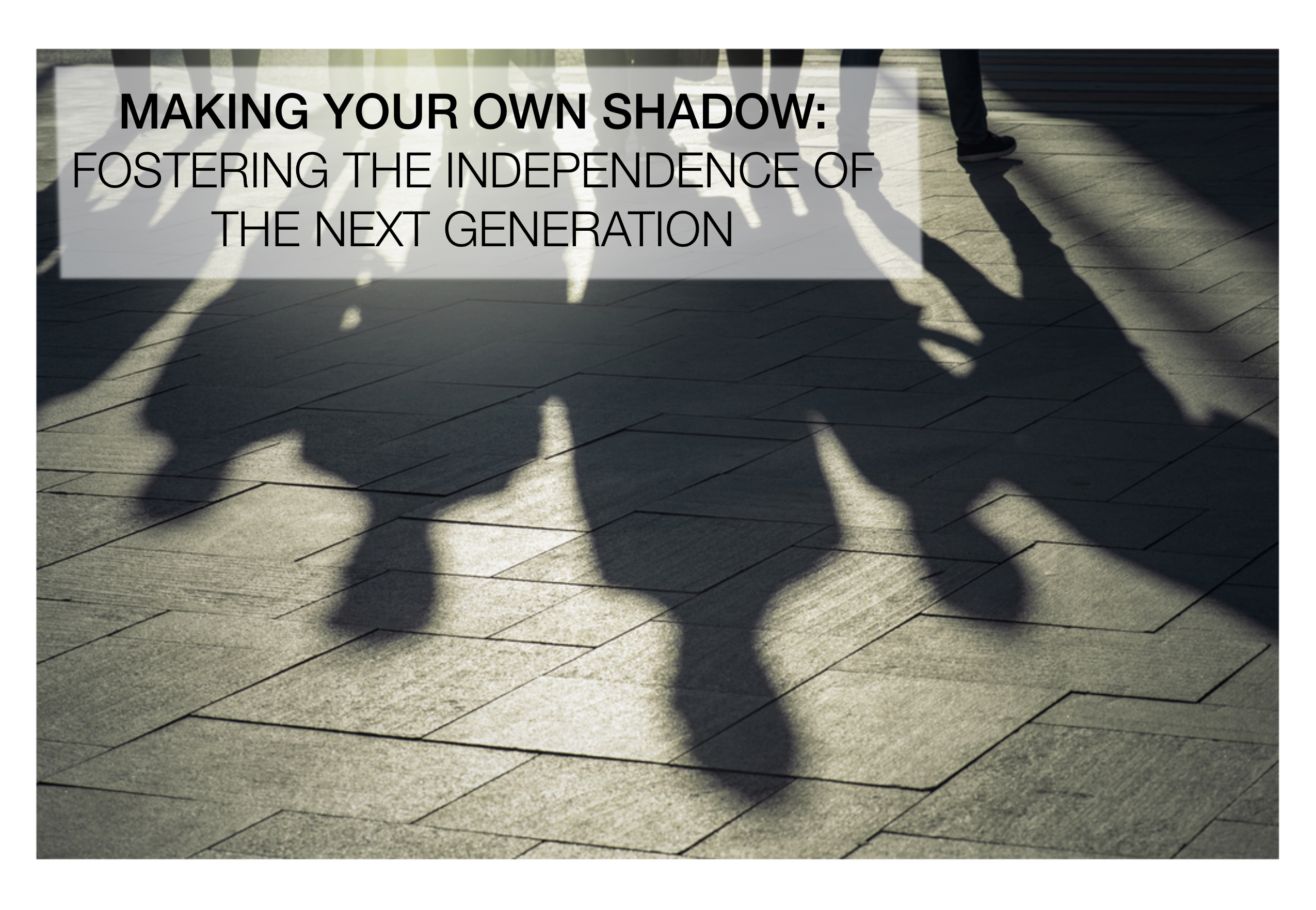We have often heard the term, to walk in someone’s shadow. Shadows, however, can smother individuals. I’ve seen it countless times when working with patriarchs and their children, executives and their subordinates or proteges, even with siblings in family businesses or family offices.
The father’s, the mother’s, or the executive’s strong influence casts a shadow from which the more junior individual finds it difficult to emerge. In short, they feel a weight of expectation to be like their predecessor, which can be toxic to the individual and create long-term mental health issues.
It’s time to change the dynamic to eliminate the shadow effect.
To do so necessitates two conversations. One is with the senior individual, highlighting to them the potentially negative effects of their shadow, convincing them to be aware of it and to lessen its impact. The second is with the more junior individual, helping them see ways to ignore the shadow.
To be fair, parents and superiors often don’t see the shadow they cast, or the efforts of their juniors to perform under or emerge from it. Ideally, we should encourage self-awareness in the senior person to the presence of their shadow and its potential for harm. They should be able to assess the situation and encourage the junior to stand on their own.
“Don’t try to be me. Be you!”
They also should have their radar on to identify how their own future behaviour is painting a shadow on the relationship.
Equally important, the subordinate must see signs of the shadow and be prepared to address it directly – with their superior and within themselves.
In a positive sense, everyone casts a shadow. Think of it as a reputation. But much like a reputation, it’s uniquely one’s own, composed of our personal and professional interactions and experiences, even our character. It has been my experience that in each interaction we absorb values and behaviours from those around us, creating our unique shadow.
A shadow may invite perceived competition between the superior and the subordinate. Competition that drives us to yearn for more and improve our lot is good. But a shadow shouldn’t lead to one upmanship, from either party.
Shadows can even reverse manifest; imagine a child who finds professional and reputational success far beyond that of their parent, leaving the parent to consider their own station wanting.
Shadows have only been made worse by social media, where people project an image of constant successes or perennial happiness unblemished by setbacks. Although we know this is nonsense, it nonetheless creates the feeling that people need to strive to “keep up with the Joneses,” or worse they feel downtrodden with their perceived shortcomings.
None of this is to say shadows are inherently bad. In some ways, they’re part of a halo, coattail or legacy effect. Being associated with families with esteem in the community, or executives respected in business or professional circles, can provide leverage to the next generation seeking to elevate their own station.
Any effort to extricate oneself from a shadow doesn’t mean that the senior won’t be there for mentorship, advice or guidance. That remains a critical role.
Whether you’re the superior or the junior in such a relationship, and you sense that the presence of a shadow is casting shade on the ability of one to thrive, the guidance of a seasoned executive counsellor may help shed light on the situation and prepare a shadow-free path for the future.
It’s important to avoid the tendency to compare oneself to others, to search for the presence of a shadow and remove yourself from it. As a senior, strive to place your child, your subordinate or your protege in their own sunlight. “That’s my shadow,” tell them. “Now go make your own.”

Leave A Comment